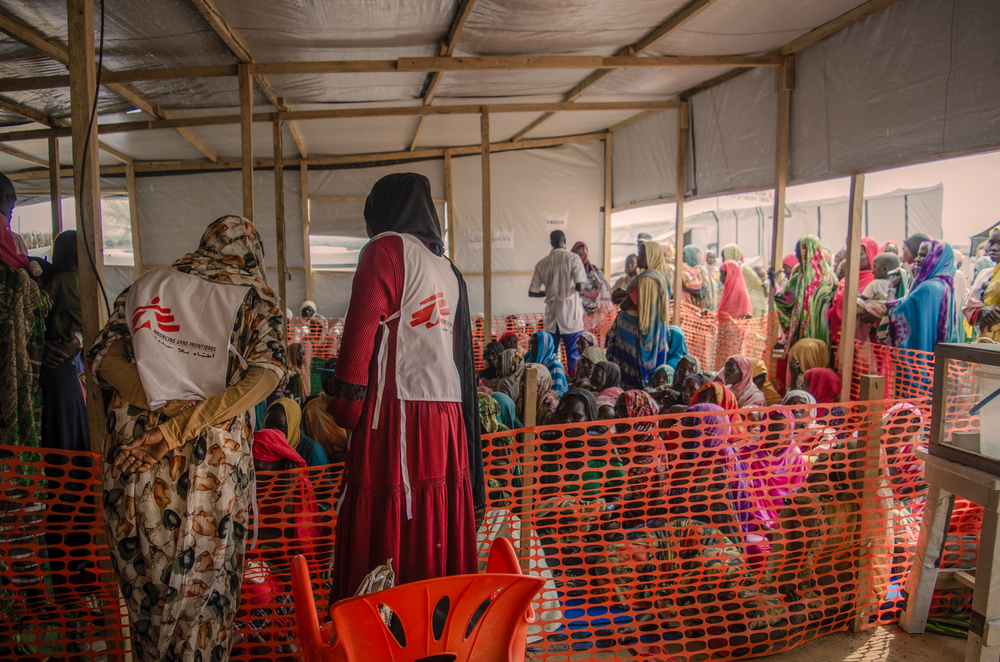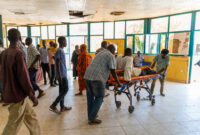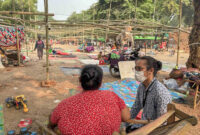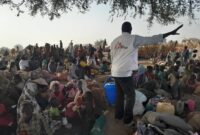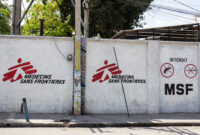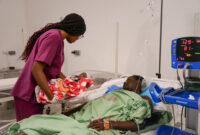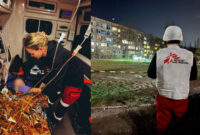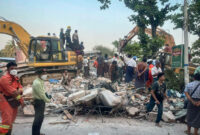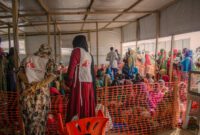Chad: MSF appeals for immediate response to Sudanese refugee crisis
The conflict in Sudan has led to the displacement of more than four million people, 3.3 million of whom are displaced within Sudan itself. More than 380,000 people have crossed into eastern Chad, most of whom have sought refuge in camps and settlements in and around the border town of Adre. Teams from international medical organisation Médecins Sans Frontières/Doctors Without Borders (MSF) are currently witnessing the dire living conditions in these settlements, where refugees face severe shortages of food, water, sanitation, shelter and medical care. MSF appeals to the UN, international donors and humanitarian organisations to respond swiftly to the urgent humanitarian needs of the refugees in Adre and across Ouaddai province.
“It’s hard to describe what these people are going through,” says Susana Borges, MSF emergency coordinator in Adre. “People are desperately waiting for food rations. Some have gone five weeks without receiving food. People are feeding their children on insects, grass and leaves. They have much less water than they need and many have no shelter whatsoever. How can they survive like this? People are desperately waiting for food rations, but they don’t even have basic cooking supplies. How will they cook if they have no pots?”
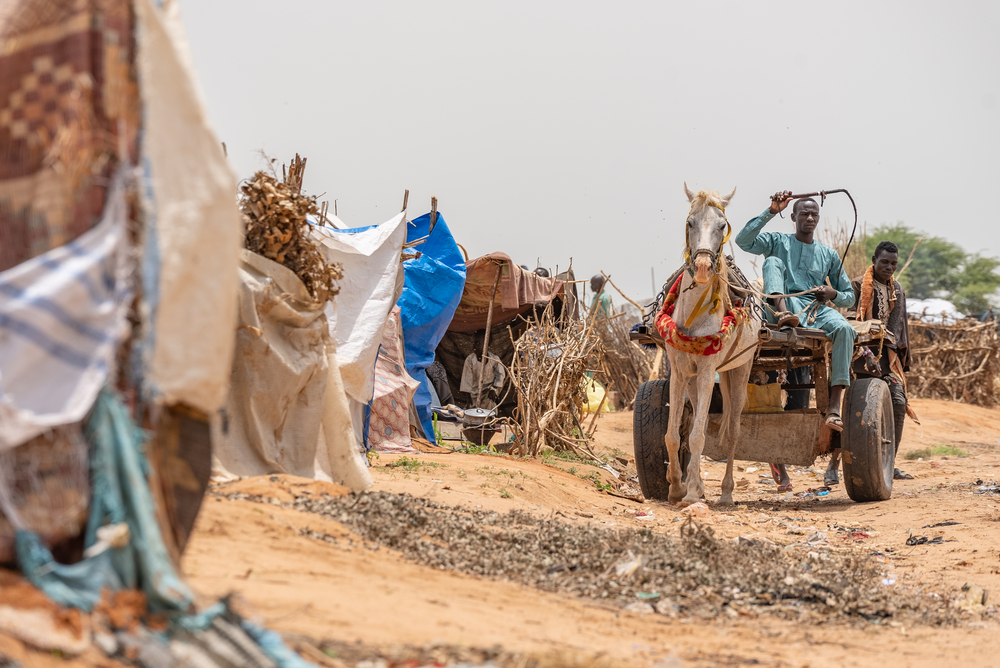
MSF medical teams in eastern Chad are treating the refugees for health conditions related to their poor living conditions and lack of food. “The most urgent health needs we are dealing with are malaria, diarrhoea and malnutrition,” says Borges. “We are doing our best, but people’s needs are massive and there is only so much we can do.”
Across the border in Sudan, the number of people forced to flee their homes is rising daily. MSF medical teams in Sudan have treated large numbers of people injured by bullets and in explosions. The health system is buckling under the pressure of operating in a conflict situation. Several medical facilities have been damaged in the fighting, while other facilities are overwhelmed with patients and short of medical staff, supplies and, in some cases, water and electricity.
“We are deeply concerned about the population within Sudan and their access to healthcare, as well as the increased risks of epidemics resulting from the current situation,” says Trish Newport, MSF’s head of emergency response. “We are also deeply concerned about people who have fled Sudan for Chad. The situation in eastern Chad is a major emergency and risks deteriorating further if there is not a swift and substantial scale-up of humanitarian aid.”
In the eastern Chadian province of Ouaddai, MSF teams are providing critical medical care in partnership with the Ministry of Health. They have expanded inpatient capacity in Adre hospital and four neighbouring health centres to 420 beds. MSF teams at a 38-bed clinic in Camp Ecole are conducting around 460 consultations daily and are currently treating 372 children for malnutrition.
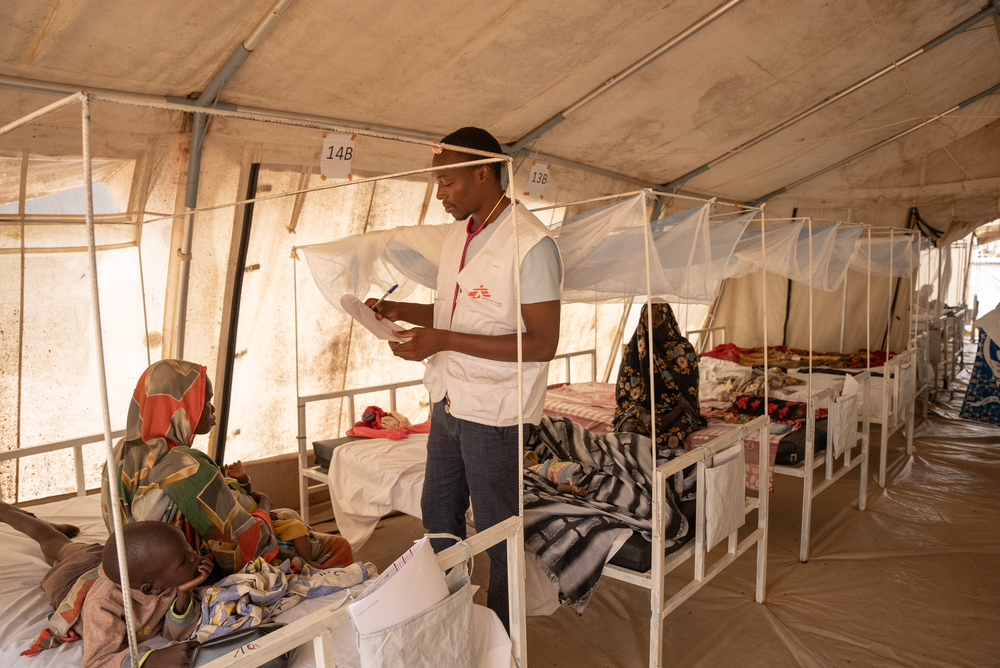
In Adre hospital, 150 patients are currently receiving treatment for trauma injuries, mostly gunshot wounds sustained in Sudan, while 133 children are being treated for life-threatening medical complications linked to malaria and malnutrition.
MSF teams are also providing maternal healthcare and care for survivors of sexual violence. MSF mental health teams working in Camp Ecole have heard numerous reports of Sudanese women and girls being subjected to rape and other forms of sexual violence during their journey to Chad. Many recounted being confined in a room and raped by groups of men. Given the depth of their psychological trauma and suffering, these people need ongoing and comprehensive support, say MSF mental health staff.
MSF calls on the UN, international donors and aid organisations to meet the urgent humanitarian needs of Sudanese refugees in Chad in order to prevent more suffering and potential loss of life.
